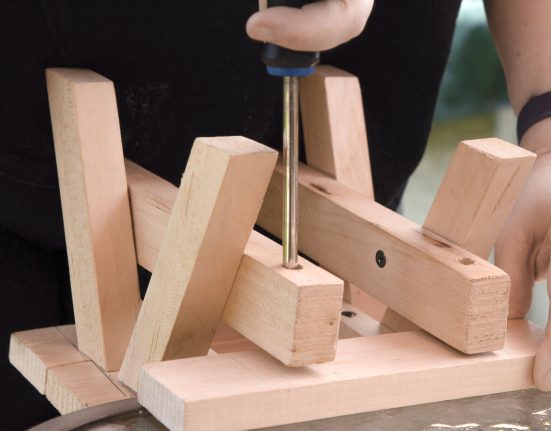Let’s say you want to make an improvement to your home. Perhaps it’s an expensive project such as a kitchen. Of course, the big upside of the DIY renovation route is cost savings, which is what attracts most people to tackling projects themselves. Saving money is particularly true for small projects since contractors usually charge a minimum amount for any project they take on. The hope is that some old fashioned sweat equity and time you can save some (or maybe a lot) of money doing it yourself.
In any home improvement project there are multiple considerations you must take into account before deciding on DIY vs. hiring a professional. Above all, you must take an honest inventory of all the resources you have at your disposal for the project (especially financial). Consider your current home renovating skill level based on past projects you’ve done and what you’ll need to learn for successfully and professionally completing your next project.
Most importantly, consider your DIY aptitude. How suitable you are for actually doing this kind of work, especially if any new learning is involved? Some DIY savvy people tick all of the boxes and can therefore anticipate getting a project done roughly on time and on budget. However, DIY newcomers and even people with a project or two under their belt can struggle with simple jobs that seemed easy but required more skill and resources than they thought they had.
Successful DIY people are made, not born. They’re the experienced “handy” hobbyist types. They love hanging out at places like Home Hardware and are always curious about their neighbours’ reno projects. They’re comfortable working with various tools, have patience and a keen attention to detail. They view a home improvement project as an invigorating challenge and a point of pride rather than something they just need to get done as soon as, and as cheaply, as possible. Does this sound familiar? Then DIY is probably for you!

Do You have the Tools Needed?
Most DIY projects require at least a few tools. Do your research and make a list of what tools you’ll need for your project and the amount of up front and ongoing financial investment needed for those tools. Simple tasks such as paint jobs may only require a few items – the right paint from a well stocked local supplier, a basic toolbox, paintbrushes/rollers and tray. More complex projects might require expensive specialized tools or power tools. In some cases you’ll save money by renting these tools, and in other cases it makes more financial sense buying them. Perhaps someone you know can loan you some of the tools you need? You’ll be able to do much of this research online or by talking to local professionals who are skilled in the area of interest.
Are You Handy Enough For The Job?
Tools are not the biggest factor in a DIY project. The most important component in any DIY project is YOU. You must be skilled enough for the project, plus willing to spend the time to do the job properly and safely. Are you the type of person who typically buys a retail item, ignores the instruction booklet, and prefers to dive right in and figure it all out by intuition or trial and error? If so, DIY is probably not for you.
During the research phase you should learn how much time is needed for your project. Are you both willing and able to spend that amount of time for getting your project done by a certain deadline (eg. by spring of next year when you plan to sell your home)? Are you able to do it yourself and meet that deadline, or will you need help, and who could provide it? If you’re a weekend warrior DIYer, then you’ll need to be dedicated with your precious spare time. Are you willing to forego your other hobbies and family time for the job, especially over an extended period of time? There’s nothing worse than getting part way through a project and then getting pulled away! Whatever the project is, set a deadline and stay focused!
Do you need a permit for your project?
If you determine you’ve got all the proper tools and the ability to do your project, your next step is getting the proper licensing for your project. You or your hired contractor can legally do any kind of renovation on your home provided you have the necessary building permits and inspections. Licensing from your local municipality is required for certain types of projects including:
• Large Projects: bricklaying, siding, drywalling.
• Changes to Property Site Plan: adding or knocking down walls, new windows or doors, fireplaces, some decks, new basements.
•. Complex Projects Requiring Specialized Knowledge: waterproofing a foundation.
• Projects Involving Hazardous Work: roofing, electrical, etc.
•. Demolitions: removing a garage, shed, porch, or tree.
All of these types of projects can be done DIY, but in many cases you’re better off hiring a licensed contractor for ensuring quality, cost effectiveness, safety and timely completion.

When You Must Hire A Professional
Some projects require a licensed tradesperson with lots of training and experience. These are the projects you definitely need to hire a professional for and should never undertake yourself unless you’ve previously done the work professionally. They include electrical work, plumbing, HVAC (heating, ventilation and air conditioning), and structural changes (removing or adding walls, building additions, etc.).
Choosing A Contractor
For the projects where you’ll need to hire professionals, the quickest and most effective way of hiring the best contractors is asking people you know and trust for referrals. You need to ascertain a contractor’s actual on-the-job track record. The best way of doing that is via referral.
Ask friends and neighbours for referrals. Use the Facebook Recommendations feature for tapping into a much wider network. Google Reviews on a given contracting company are a great way of assessing that company. Disgruntled past customers who have had bad experiences with them are the most likely to post negative reviews of them with detail.
There are many advantages in approaching contractors referred by people you know and trust, especially if they are neighbours. You can see first hand, the finished projects they have done. Such contractors may know your neighbourhood’s houses and their common issues, if they’ve done several local projects.
Cast Your Contractor Net Wide
Believe it or not, you should reach out to 10-15 different contractors for estimates. Keep in mind, that only about 50% of the contractors you contact will actually visit your home, and typically only 30% will provide a quote with estimated pricing afterward. There are various reasons to expect a limited responses to your inquiries, including lack of interest, insufficient ability, too small a budget, etc. This is actually your first test of your contractors. A contractor returning your initial phone call a week later, does not bode well for your project. Understand that a quote will not include a detailed scope of work. Rather, they will be very basic outlines of the project with a dollar range given for each project component.
For the projects where you’ll need to hire professionals, the quickest and most effective way of hiring the best contractors is asking people you know and trust for referrals. You need to ascertain a contractor’s actual on-the-job track record. The best way of doing that is via referral.
Selecting A Contractor
It’s common for people to focus only on the estimated price when assessing contractors. The conventional wisdom with selecting contractors is ignoring the highest and lowest estimates and picking one that’s about the average price among them all. But don’t let price be your first and especially not your only consideration. Estimates are just that – estimated prices. They aren’t cast in stone. The companies who have the highest estimates may actually be the most honest and the lower ones may be bidding low just to win the project. They may later inflate the price up to average cost (or more) by adding in deliberately omitted work components that the more honest contractors included from the start. For example, doing a full-kitchen renovation in older homes may involve new plumbing systems, upgrades to the electrical system, or both. There are many variables in projects (especially larger ones)!
What’s Most Important With Contractors?
Character. When contractors visit your home to assess your project, obviously use the opportunity to interview them professionally. Also, take time to look more closely, and get to know them on a personal level. Did they come off as professional and arrive on time? Did they have an honest, straightforward approach to the project, or were they vague and evasive? Were they patient with you and give you jargon-free advice, or did they seem to be in a hurry? Did they listen to your questions and concerns? Did you feel they clearly undersood what you want? Did they seem like a consultant or a sales person? Did they provide any useful advice on how to approach your project, or did they just seem intent on closing the deal?
A true professional will have pictures of completed projects similar to yours in a binder they can show you or a website gallery. Above all, ask yourself: do I like this person? Think of an estimate visit as a first date. Would you want a second date with them? There are many fish in the contracting sea!
A home renovation can be a long project with dozens, if not hundreds, of decisions made along the way by both you and the contractor. It’s crucial you both trust the company professionally and like them on a personal level. Remember, this person may be in your home and around your family for an extended period of time.
Assessing The Estimate
Consider how thorough each contractor’s estimate is. Though it won’t detail all the different aspects of the work involved, you must ensure the estimate’s scope includes all the basic things you’re looking to have done. Beware of the vague, dashed off quotation with small errors (eg. typos). It may indicate the contractor isn’t serious about the project. A good contractor will patiently elaborate on their estimate when asked and be ready to advise you on anything to do with the project even before getting hired.
When considering the various estimates you receive (get a minimum of 5) and the costs, you’ll find the total project prices will vary greatly. Count up all the numbers for each estimate and calculate an average final price. Any estimates that are considerably below the average may have omitted aspects of the project you requested. If someone forgets or hides things before you hire them, those traits will get magnified within the project after you hire them. It would be best to eliminate those contenders right away.
Lastly, before hiring a given contractor, ensure they, and their crew all have valid and current operating licenses for the intended work. All workers must also have workers’ compensation and liability insurance.
Renovations are a big and costly decision. We hope these suggestions will help you and your project (whether you plan to DIY or hire someone) get off to a great start!














